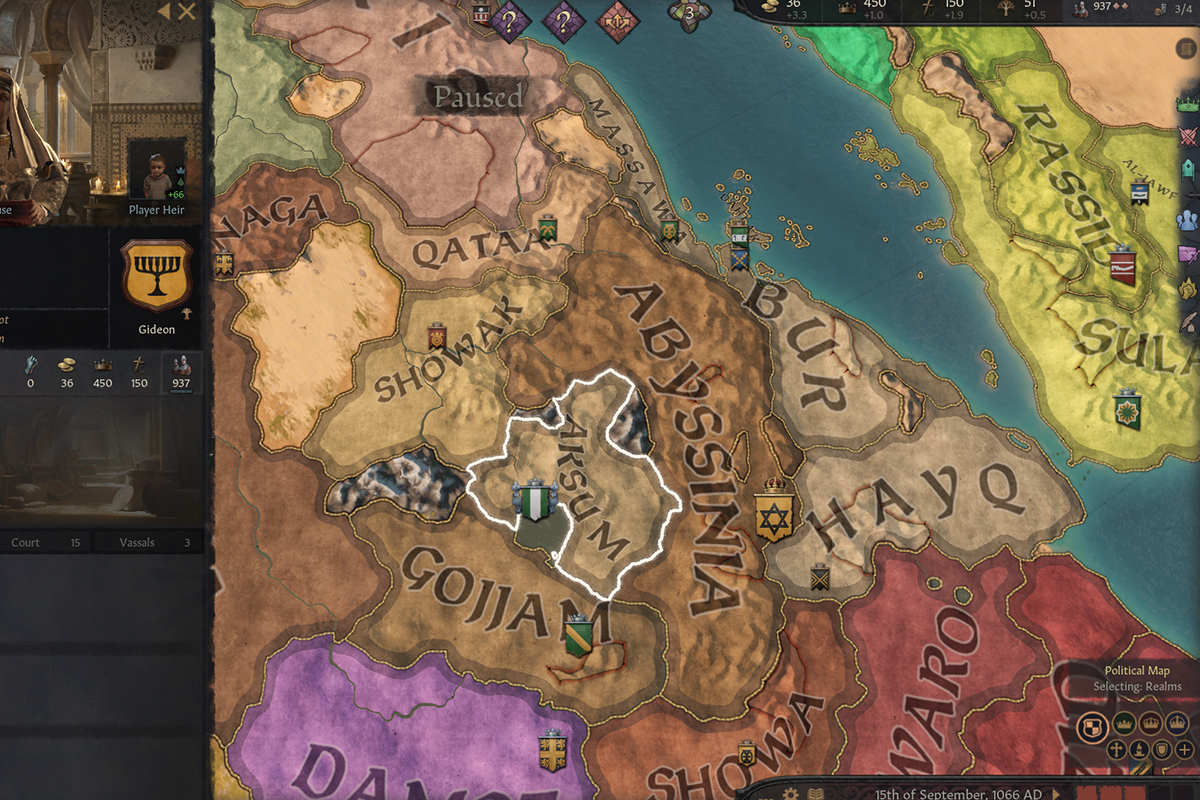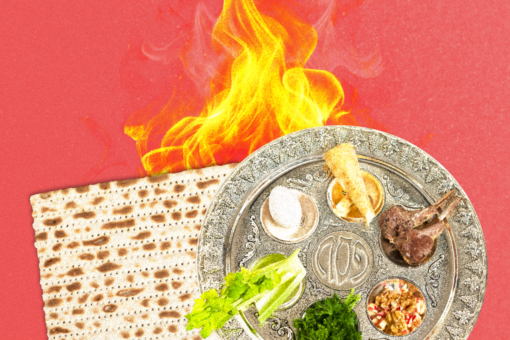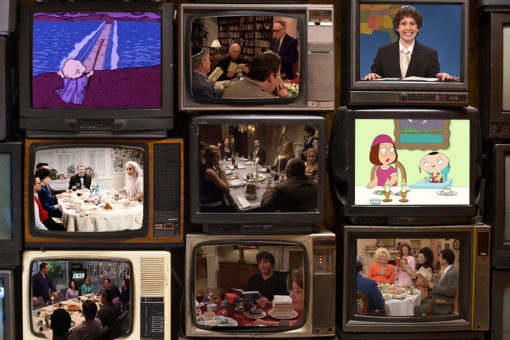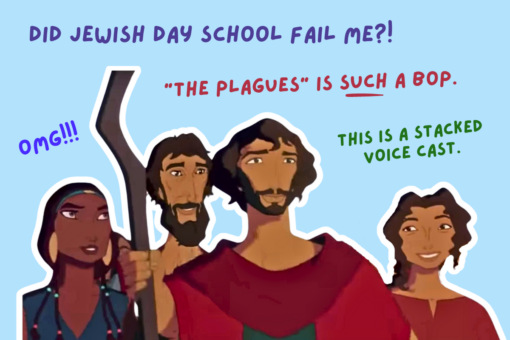By now you probably know this, but just in case, I’ll say it up front: Our Jewish education systems are failing to teach us about the vast diversity of the world’s Jewry. I went to dual-curriculum Jewish day schools from K-12 and only in the last five years have I come to fully comprehend just how much more I have to learn.
In these last few years there are a lot of ways I have been pursuing a deeper Jewish education. I just didn’t think video games would become a part of it.
If you’ve never heard of the game Crusader Kings III (referred to by many as CK3), imagine if Cersei Lanister made The Sims. CK3 is a sprawling game where you play as members of a family dynasty in some region from Europe, North Africa, and Asia in the Middle Ages. There’s no real goal or win conditions. You are free to fight wars, seduce the Pope, or track down the man who murdered four of your husbands only to find out it’s your evil twin who is also in love with you.
For my first game, I played as the rulers of Ireland. I was middling about, thinking I understood the game, when the Pope asked me to send my armies on a crusade. Of course he wasn’t really “asking” me. I sent a couple hundred soldiers to a region which is now part of Lebanon, and in their first battle, they all died. So you can imagine my surprise when a few in-game months later, the Pope awarded my niece a kingdom spanning from the Nile delta past the Jordan River.
Now I was the Irish Queen of a large swath of the Middle East, when all of a sudden a courtier of mine told me that I should convert to Karaism. I didn’t recognize the name, but I did it anyway. Then I noticed a Star of David in my religion tab. All of the sudden, I was the Jewish Irish Queen of a large swath of the Middle East. All of my dreams I never knew I had were coming true.
It would not end well for me.
An order of Karaite warriors swore their allegiance to me. I called them my Hench Mensches. I ruled with a just but firm hand for five years while claiming further lands for my vassals. You know how vassals get. Then the Pope got mad. The entirety of Europe invaded my poor country. When I lost the last Hench Mensch, I rage quit.
However, now that I knew that you could play as a Jewish character, I had to try again. My next game I played as Dawit II of Aksum, a Haymanot Ethiopian Jew. This time I decided to keep my head down and focus on my own lands. I built up my relationship with my wife, Woyzero. At first I tried to write her a love poem, but Dawit was no poet. Love bloomed though when we were at a state dinner in a neighboring kingdom. In the middle of the meal Woyzero farted, loudly. I took the fall, and though it meant being embarrassed in front of the local petty kings, I won her love.
We had four children, two boys and two girls. I focused on finding a good education for our kids, building up local infrastructure and forging a bond with my raban (the Haymanot religious leader). The only problem was my nation was vulnerable. In my past game, I relied on marrying off my children to powerful neighbors to forge alliances. But no one wanted to marry my children; we were a different religion, and it was 1078 CE. I told myself it was fine because there was no one good enough for my beautiful babies.
Eventually Dawit died, and now I was playing as his son Hezekiah. I married a nice Sephardi woman visiting the court and was continuing on the same path when tragedy struck. The king of Abyssinia declared war. We were outnumbered two to one, and I had no allies. He invaded, and for the rest of the game, my family served as vassals in his kingdom, fending off rivals and resisting our lieges’ constant requests to convert.
I was hurt. Me, Zev, was emotionally devastated. In a song by Kaveret, there’s a verse which translates to, “We always go by foot, singing songs without a flag, breathing for years without reason.” For me this evokes the deep Jewish desire to be allowed to just simply exist. I had played as a “typical” European leader conquering lands for my people, but living a simple and quiet life hadn’t made a difference either. I wasn’t mad at CK3 though. I felt seen.
I had never before realized how much I needed Jewish representation in video games. While we see many, though often problematic, Jewish characters in television, they’re almost non-existent in the gaming world. More than any other medium, video games place you in the heart of the story. So getting the chance to play as a Jewish dynasty, for the first time in my life, allowed me to explore Judaism in a historical context I had never before explored. And what’s more, the Judaism being explored in CK3 goes beyond the one I grew up steeped in as an Ashkenazi Jew.
There are so many more resources now to learn about all kinds of Judaism in so many different places, including Instagram. But CK3 gave me a different kind of education. They thoroughly researched different cultural and religious aspects of Judaism. Their unique attributes don’t just provide different flavors of gameplay; they are based on a rich history I still feel like I’m only starting to learn about. There’s a delicate balance engaging in the history of other Jewish groups, of accepting it as part of our larger historical narrative without appropriating. By engaging in this through a video game, I was able to put myself in the story of Haymanot Jews without co-opting their history. It gave a new context to the stories I’d learned, and made it less distant.
We all remember that we suffered. It’s been the bulk of my Jewish history education. What this game clarifies is that the suffering isn’t the interesting part, it’s the life that happens in between. Each Jewish community has a similar story of persecution. What isn’t the same is what those communities looked like when they were just allowed to live and be free. That’s the good stuff! What was a normal Shabbat like for ancient Cochin Jews? What kind of dancing happened at traditional Beta Israel weddings? Jewish life is more complex and wonderful than our collective trauma. Our education needs to start reflecting that.



